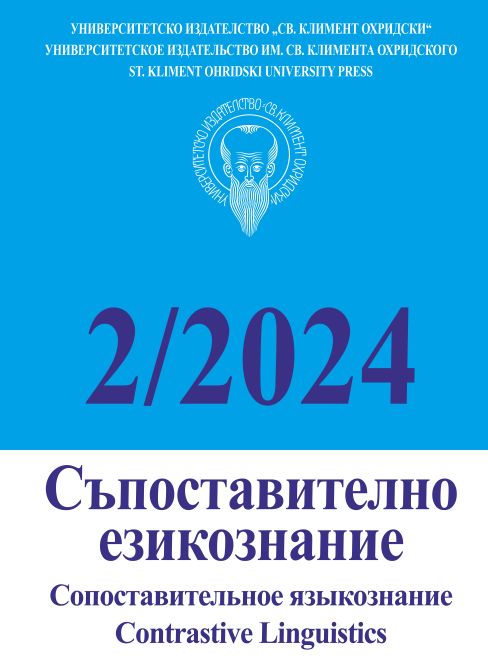Усвояване на хоноративната система в езиковия репертоар на японски ученици между 6 и 12 години
Acquisition of the honorific system in the linguistic repertoire of Japanese students between 6 and 12 years of age
Author(s): Anton AndreevSubject(s): Social Sciences, Language and Literature Studies, Education, Theoretical Linguistics, School education, Philology
Published by: Софийски университет »Св. Климент Охридски«
Keywords: Japanese language; honorific system; first language acquisition; elementary school pupils
Summary/Abstract: This paper gives some insight into the way native honorifics are acquired by Japanese children of 6 to 12 years old, using the methods of a semi structured interview and a language task. Children this young use a different range of language means and in a different way in comparison to adults. Most common, unsurprisingly, are the addressive (listener-oriented) honorifics, which are usually found at the start of an interaction, in standard formulae and in direct appeals to the addressee. This might be because the addressee is a tangible participant in the communication, while topic-oriented forms need a more subtle understanding of the relations within the triad speaker-addressee- topic. The use of addressive forms does not show a perceptible age difference, perhaps because they are acquired earlier than the researched age range but mastered later. On the other hand, topic-oriented forms show an age difference, which implies that grammatical acquisition happens exactly in the researched age, with perception preceding production. The obviously existing difference in the age of acquisition between addressee- oriented and topic-oriented honorifics implies their relative systemic independence.
Journal: Съпоставително езикознание / Сопоставительное языкознание
- Issue Year: 2024
- Issue No: 2
- Page Range: 51-74
- Page Count: 24
- Language: Bulgarian
- Content File-PDF

